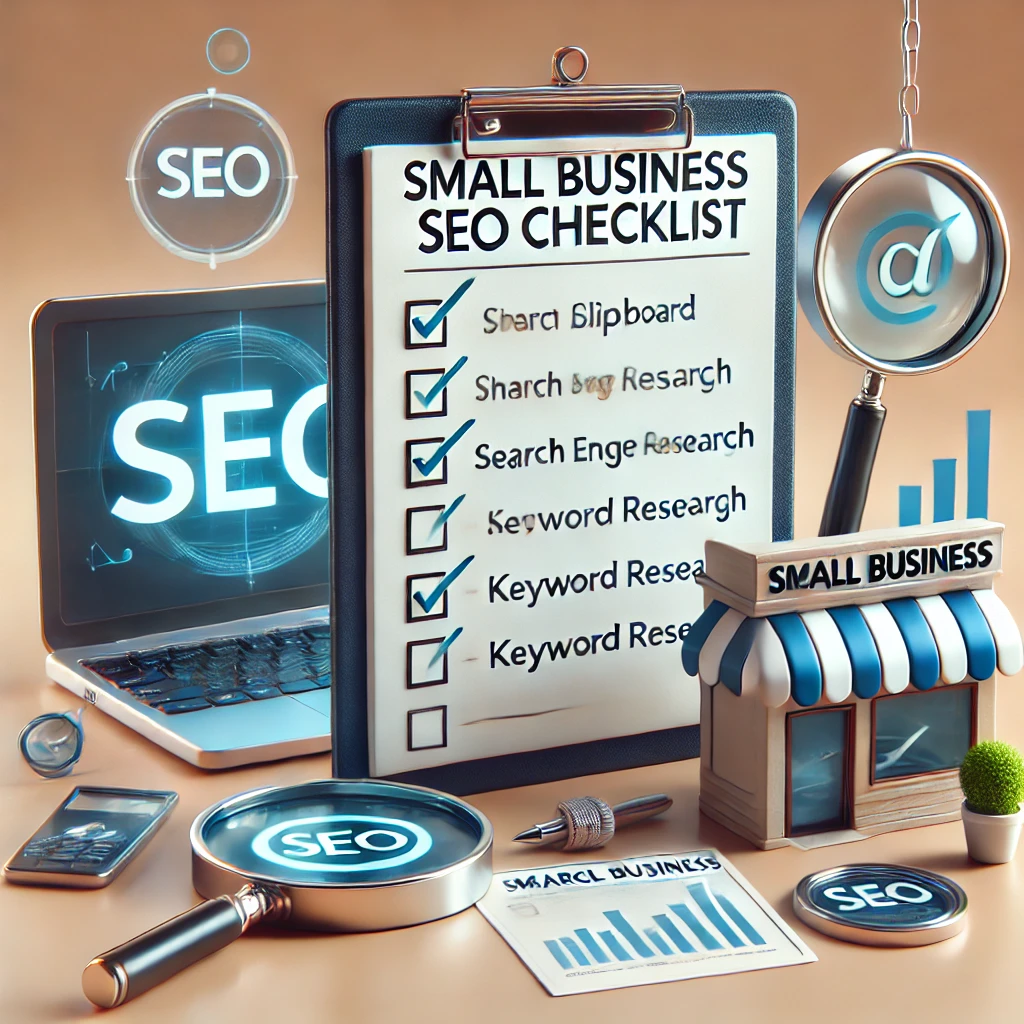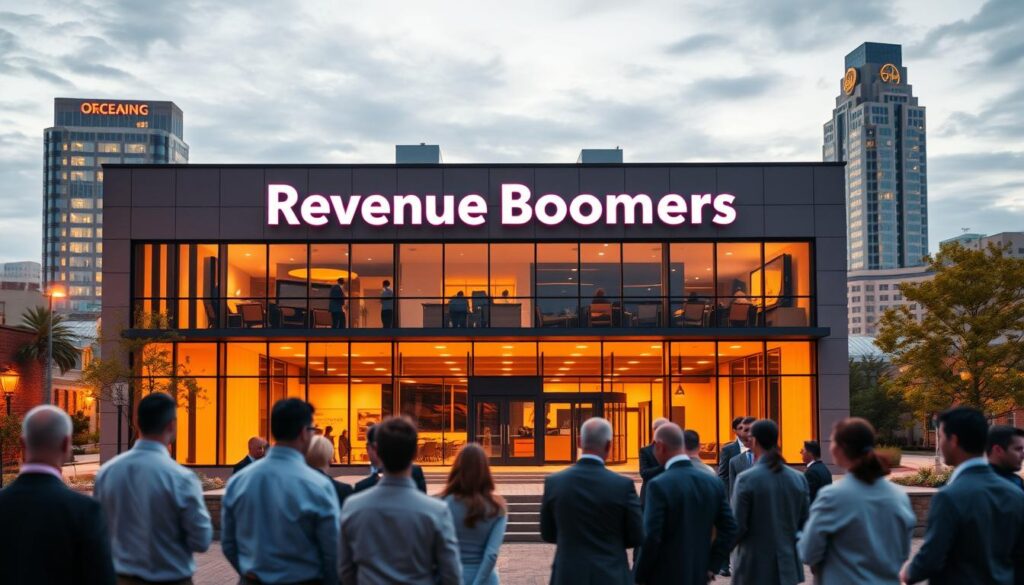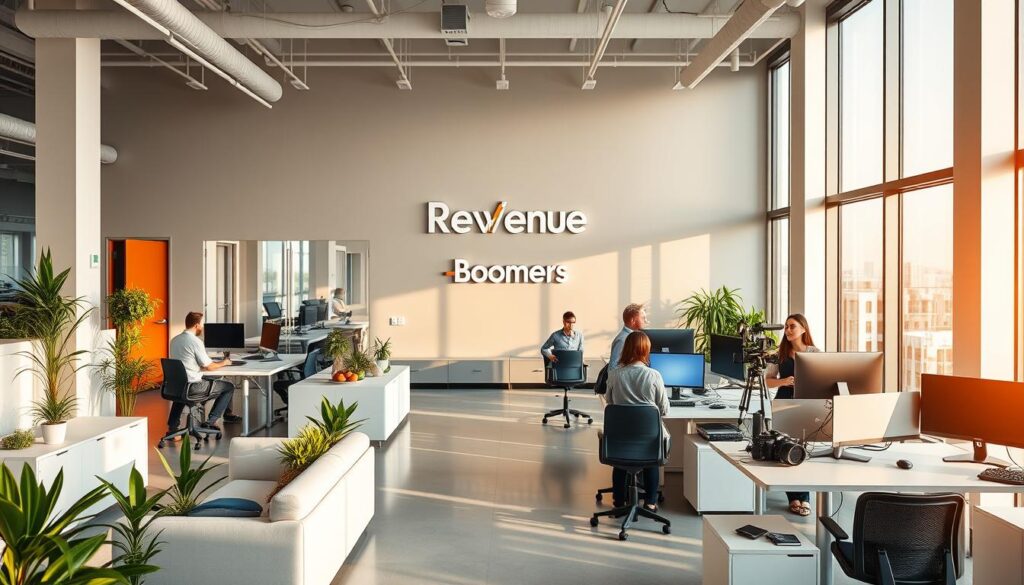Introduction: Small Business SEO Checklist
For small businesses, a strong online presence is crucial in today’s digital landscape. SEO (Search Engine Optimization) is essential for attracting customers, building credibility, and staying competitive. This guide covers all aspects of SEO—from keyword research to technical optimization and link-building—providing you with the steps to fully optimize your website. Book a free consultation with Revenue Boomers to learn how our expert SEO team can help grow your business online.
Table of Contents
- Why SEO is Critical for Small Business Success
- Small Business SEO Checklist
- Local and National SEO: Strategies and When to Use Each
- Essential SEO Tools for Small Businesses
- Keyword Research for Targeted Traffic
- On-Page Optimization Techniques
- Local SEO and Google My Business Optimization
- Web Design and Page Speed Optimization
- Content Creation and Content Marketing
- Link Building and Types of Backlinks
- Technical SEO Essentials for Website Health
- Advanced SEO Tips for Continuous Growth
- FAQs
- How Revenue Boomers Can Help Your Business Thrive
Why SEO is Critical for Small Business Success
SEO connects small businesses with customers who are actively searching for products and services online. By optimizing your website, you can rank higher in search engine results, attract local and national traffic, and increase conversions. SEO’s long-term benefits allow small businesses to grow sustainably, leveling the playing field with larger competitors.
Small Business SEO Checklist
1. Local and National SEO: Strategies and When to Use Each
Local SEO is ideal for businesses serving specific areas, while national SEO targets broader, non-location-specific audiences. Both approaches have unique advantages depending on your business type and goals.
Local SEO Tactics:
- Google My Business: Ensure your profile is complete and up-to-date, with accurate business hours, photos, and descriptions.
- Local Keywords: Use phrases like “plumber near me” or “café in [City]” to capture local searches.
- Local Citations: List your business in local directories like Yelp and TripAdvisor, and ensure NAP (name, address, phone number) consistency.
National SEO Tactics:
- Broad Keywords: Target keywords without geographical markers, such as “organic skincare” or “e-commerce solutions.”
- Content Focus: Create blogs, guides, and resources that appeal to a wide audience.
- Competitive Analysis: Analyze competitors to understand which keywords and strategies they use to rank nationally.
By implementing both local and national strategies, small businesses can broaden their reach while also strengthening local connections.
2. Essential SEO Tools for Small Businesses
SEO tools simplify optimization, tracking, and analysis. Here are some essential tools:
- Google Keyword Planner: Research keyword volume and competition.
- Google Analytics: Monitor site traffic, user behavior, and conversions.
- SEMrush and Ahrefs: Advanced tools for competitor analysis, backlink monitoring, and keyword research.
- Yoast SEO (for WordPress): Optimize on-page SEO elements like meta tags, readability, and more.
- Google PageSpeed Insights: Analyze page speed and get recommendations to improve load times.
Using these tools will streamline your SEO process, allowing you to focus on what drives the best results.
3. Keyword Research for Targeted Traffic
Effective keyword research aligns your content with what potential customers are searching for, helping you attract high-intent traffic.
- Identify Primary Keywords: Start with keywords that directly relate to your products or services.
- Long-Tail Keywords: Focus on long-tail phrases such as “affordable bookkeeping for freelancers.” These attract more specific traffic and often have higher conversion rates.
- Search Intent: Choose keywords based on user intent, such as “best,” “affordable,” or “near me” for customers ready to make a purchase.
- Use Tools to Analyze Volume and Competition: Google Keyword Planner, SEMrush, and Ubersuggest provide keyword data, helping you identify which terms are most relevant.
With targeted keywords, you’re not just attracting visitors but reaching users likely to convert.
4. On-Page Optimization Techniques
The process of on-page SEO involves optimizing each page on your website, making it easier for search engines and users to understand the content.
- Title Tags and Meta Descriptions: Use primary keywords in titles and write compelling meta descriptions.
- Headers (H1, H2, etc.): Use keyword-rich headers to structure content and improve readability.
- Image Optimization: Use alt text for images with relevant keywords to boost accessibility and SEO.
- Internal Linking: Link to other pages on your site to guide users through related content and improve SEO.
On-page optimization improves user experience and signals relevance to search engines, increasing your chances of ranking higher.
5. Local SEO and Google My Business Optimization
Local SEO connects you with nearby customers, making it essential for brick-and-mortar businesses.
- Optimize Google My Business: Include accurate NAP details, a description, and high-quality photos.
- Gather Reviews: Encourage satisfied customers to leave positive reviews, as they improve your profile’s ranking and credibility.
- Local Citations: List your business on directories like Yelp, TripAdvisor, and the Better Business Bureau.
- Location-Specific Content: For businesses with multiple locations, create dedicated pages targeting each area.
Now that you understand the basics, local SEO helps small businesses stand out in local searches and attract nearby customers actively looking for services.
6. Web Design and Page Speed Optimization
A fast, mobile-friendly website is essential for keeping users engaged and improving your rankings.
- Mobile Optimization: Make sure your website is responsive and works well on mobile devices.
- Minimize Load Times: Compress images, reduce redirects, and leverage browser caching.
- SSL Certificate: Secure your site with HTTPS, which is favored by search engines and builds user trust.
- User-Friendly Navigation: Ensure users can easily navigate your site with a clear structure.
Fast-loading, user-friendly websites retain more visitors and perform better in search engine rankings.
7. Content Creation and Content Marketing
High-quality content attracts organic traffic, engages visitors, and builds authority.
- Start a Blog: Write blog posts that address customer questions or industry trends.
- Create Service Pages: Optimize pages with clear descriptions of each service, including target keywords.
- Content Calendar: Plan a content calendar to keep your website updated regularly.
- Educational Resources: Consider creating guides, how-tos, or case studies to demonstrate expertise.
Regular content updates keep your audience engaged and improve your site’s SEO performance.
8. Link Building and Types of Backlinks
A strong backlink profile establishes authority and improves rankings. Here are different backlink types and strategies:
Types of Backlinks:
- Editorial Links: Earned by publishing high-quality content that others want to link to.
- Guest Posting: Write articles for reputable sites in your industry with a link back to your website.
- Directory Links: List your business in relevant directories, such as Yelp, BBB, and industry-specific sites.
- Local Backlinks: Collaborate with local businesses or events for mutual links, improving local SEO.
Focus on high-quality, relevant backlinks to establish credibility and improve SEO.
9. Technical SEO Essentials for Website Health
The process of technical SEO ensures your site is optimized for search engine crawling, indexing, and performance.
- XML Sitemap: Submit an XML sitemap to Google Search Console.
- Robots.txt: Optimize your robots.txt file to control search engine access.
- Schema Markup: Use structured data to help search engines understand content, improving chances for rich snippets.
- Fix Broken Links: Regularly check for and fix broken links, as these can hurt SEO.
Technical SEO optimizes website functionality and makes it easier for search engines to understand and rank your content.
Advanced SEO Tips for Continuous Growth
1. Voice Search Optimization
Voice search is on the rise. Focus on conversational keywords and questions like “Where can I find a dentist near me?”
2. Data Analytics and Performance Tracking
Use Google Analytics and Search Console to monitor performance and understand what works best for your audience.
3. Content Updates and Refreshes
Update old content with new information or improved readability. This helps maintain rankings and encourages continued engagement.
FAQs: Small Business SEO Checklist
Why is SEO Important for Small Businesses?
SEO helps small businesses compete by increasing visibility, attracting targeted traffic, and building credibility online. It’s a sustainable way to reach new customers.
What’s the Difference Between Local and National SEO?
Local SEO targets customers within a specific area, while national SEO targets broader, non-location-based audiences. Both approaches help grow online visibility based on your business needs.
How Long Does SEO Take to Show Results?
SEO is a long-term strategy. Initial results may appear in 3-6 months, but consistent efforts yield sustained traffic and growth over time.
Do I Need SEO Tools?
Yes, SEO tools provide insights into keyword research, performance tracking, and competitor analysis, helping streamline your strategy.
How Can Revenue Boomers Help with SEO?
Revenue Boomers offers comprehensive SEO solutions for small businesses, from local and national SEO to content creation and technical optimization. Schedule a consultation to see how we can help you grow your business.
Best Small Business SEO Checklist To Help Your Business Succeed
At Revenue Boomers, we understand the unique challenges small businesses face. Our SEO services are designed to meet these needs, from building visibility and credibility to helping you reach your growth goals. Learn more about our SEO services and let’s start building your business’s future.






